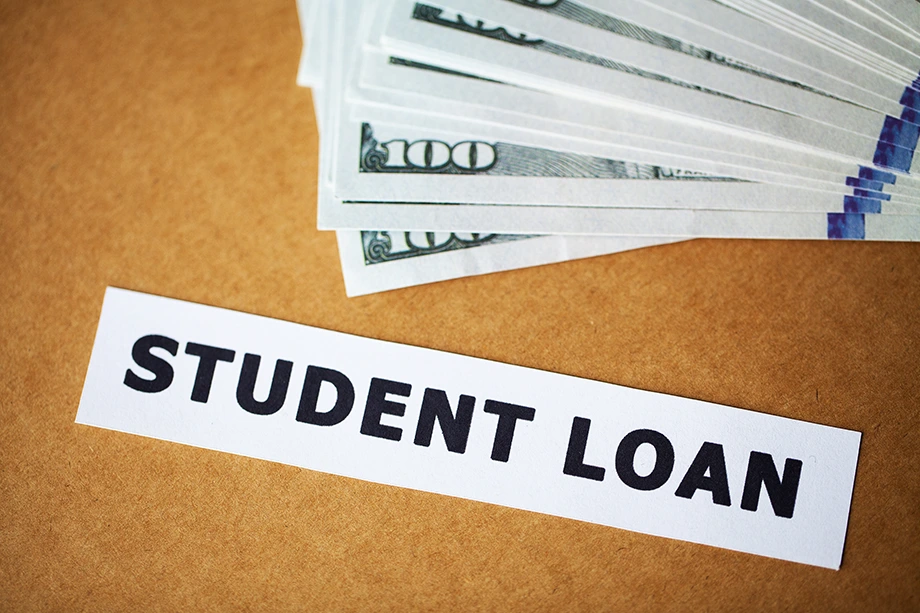According to Nerdwallet, roughly 42.7 million Americans have outstanding federal student loan debt, which has become one of the biggest consumer debt categories. Student debt in the U.S. now totals more than $1.64 trillion.
Higher education costs are now so high that many students have no choice but to borrow. And they often borrow as much as they can, assuming that they’ll have no trouble paying the loan back when they start working and earning a salary.
The truth about student loan debt
Falling behind on a student loan can be very expensive. The collection costs can be very high, in addition to the interest borrowers may already be paying. Unlike other debts where collectors have only a limited period to sue you, federal student loan debts can haunt you for years and years, (though, private student loans are subject to the statute of limitation). Also, it is extremely difficult to discharge most student loans in bankruptcy.
However, there is some good news. If you are in default on a federal loan and enter a loan rehabilitation program, then make twelve consecutive on-time payments you can bring your loan out of default (note, you can’t be one day late on those payments). When you do, your previous late payments will be removed from your credit report. Another option for getting out of default is to find out whether it is possible to consolidate your student loan out of default.
Here are four strategies for coping with high levels of student loan debt:
- Deferment
Deferment allows you to temporarily postpone payments on your loan. Whether or not you will have to pay interest on the part of your loan that is deferred depends on the type of loan you have. Eligible reasons for deferment typically include economic hardship or unemployment, military deployment, enrollment in school or an internship program, etc. Since programs change, you’ll want to check with your lender or the student loan websites in the Resources section to find out if deferment is an option. - Forbearance
If you are temporarily unable to meet your repayment schedule but are not eligible for a deferment, you may receive forbearance for a limited and specified period – usually for up to twelve months at a time for a total of thirty-six months. During forbearance, your payments are postponed or reduced. Whether your loans are subsidized or unsubsidized, you will be charged interest. It is very important that you contact your lender about deferment or forbearance before you fall behind on your payments. If you wait until you are behind, you may not be eligible. Continue making your payments until your deferment is approved.If you are approved for student loan forbearance or deferment, it should not be reported negatively on your credit reports, and should not hurt your credit scores. - Graduated repayment plan
With one of these plans, your payments start out low and will rise over time. This plan is often good for a student who is just starting out and expects their salary to increase, as they gain more experience. Caution: One of these plans can stretch your loan out to as long as thirty years. - Extended repayment plan
An extended repayment plan allows you to pay your student loan over 12-30 years instead of the standard ten-year plan. It is more expensive, but if the lower payments keep you out of default, it may be worth it.
Be a better borrower
It’s not unusual for student loans to be sold, or for a student to have eight or more loans. It can be tough keeping track of them all. Lose track of a loan, though, and you may quickly find yourself in student loan hell. The Department of Education offers these tips for being a smart borrower, and they’re good ones:
- Keep all your loan documents: This simple piece of advice is one of the most important. You’ll have problems later if you can’t find your promissory note, can’t remember what type of loans you received, or don’t know who you’re supposed to repay or how you go about postponing (deferring) repayment if you should have financial difficulties. Keep a file of all documents connected with your loans from the time you first get a loan, so you’ll always have what you need in one place. Then, you won’t be confused about what you’re supposed to do or who you’re supposed to contact if you have questions.
- Take notes: Whenever you talk to your lender or loan servicer, keep a record of the person you talked to, the date you had the conversation, and what was said. If you send letters, always include your loan account number, and keep copies of those letters (and the responses you receive) in your file, and back it up online. That way, you’ll know who said what and when, which can help you avoid problems and misunderstandings.
- Notify: Tell your school and/or loan holder in writing if you move, change your name or Social Security Number, or reenroll in school. You must ensure your loan holder won’t lose track of you. If that happens, you could miss payments and become delinquent. Also, your loan could be sold, and you won’t know who has it or where to send payments because you couldn’t be notified. Ask questions: If there’s something you don’t understand or if you’re having trouble making payments. Don’t wait until things become too tough—ask for help from your loan holder or loan servicer right away.
Don’t fear debt
It’s important to keep in mind that debt (in general) isn’t necessarily a negative thing. There is a difference between bad debt and good debt.
Bad debt is used to purchase liabilities: like cars, vacations, clothes (and yes, even an education). The only reason it’s called “bad” debt, is because it doesn’t make you richer.. It keeps you poor. This is because liabilities take money out of your pocket each month, not put money in them.
Good debt, on the other hand, is debt that puts money into your pocket each month; thus, it makes you richer. This type of debt is used to purchase things like investment real estate, business ventures, and other cash-flowing assets.
The point here is that, while many people borrow money for their higher education, they may feel a tension when thinking about borrowing money for other reasons down the road. There may be a fixation on paying off debt and never experiencing it again; when in all actuality, it’s a necessary part of building wealth.
So long story short: don’t avoid debt when all is said and done – just stay away from bad debt.
To learn more strategies for coping with student loans and getting out of bad debt, get Rich Dad advisor Garrett Sutton’s book: “The ABCs of Getting Out of Debt: Turn Bad Debt into Good Debt and Bad Credit into Good Credit“.







